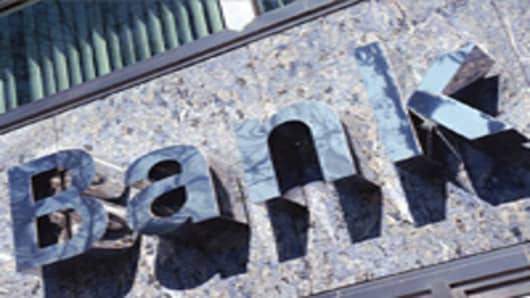A range of regulatory failures caused the financial crisis in 2008 and the Dodd-Frank Act will not prevent a future financial crisis, two bank executives told CNBC's "Squawk Box"on Wednesday.
"I will tell you that this crisis we went through, financial crisis, did not have to happen," Bill Isaac, former FDIC chair, said in an interview.
The regulators had every power needed to deal with institutions that were getting out of line and taking excessive risks, he said. "The only issue is, do you have the political will to take action?"
Richard Kovacevich, former CEO of Wells Fargo, agrees. “There were five safety valves that usually keep things under control that all failed,” he said, pointing the finger at the credit ratings agencies, Fannie and Freddie Mac, the Securities and Exchange Commission, bank regulators and state regulators.
“How could credit rating agencies in any set of circumstances rate some of this stuff triple-A?,” he asked, referring to the tranches of mortgage-backed securitiescreated by the investment banks and then sold off to investors. “It is inconceivable if you know anything about the mortgage business.”
Fannie and Freddie guaranteed many of the subprime mortgages, while the SEC was the regulator of the credit agencies and the investment banks, Kovacevich noted. State regulators had oversight of the mortgage brokers. Kovacevich said there was “absolute fraud” by the mortgage brokers who originated many subprime mortgages without documentation.
Echoing Kovacevich’s assessment, Isaac, said “The SEC is at fault. They made a number of egregious mistakes.” Isaac also put the blame on the Federal Reserve, the Basel capital accords, and the Office of the Comptroller of the Currency.
“Everybody broke down and didn’t do what they needed to do here,” he said.
Kovacevich noted the regulatory mechanisms haven’t been capable of reining in the risk of financial institutions. He expects banks will continue to fail and that “there’s nothing in Dodd-Frank that would have prevented the last financial crisis, nor will it prevent the next crisis.”
Instead, Kovacevich said the Dodd-Frank financial reform is the $180 billion bill the taxpayer must pay to rescue Fannie and Freddie. “And the price is going up,” he said. Banks will also get bigger under Dodd-Frank, Kovacevich warned because the increased regulation is stifling smaller banks.
(Read More:The World's Safest Banks 2012.)
When banks do fail, Kovacevich said “All providers of capital except insured depositors must take a hit on that failure. Not the taxpayer, not the FDIC.” That means bondholders and uninsured depositors must take a hit.
Capital is not the answer either, because capital is permanent, the former Wells Fargo executive said.
“Where you have to have the discipline is on the bondholder,” Kovacevich said. “The bondholders don't have any upside, so they're the ones that keep the risk down.”
Isaac does believe that some banks still need more capital and should be required “to add capital and reserves like crazy when they're making money, when times are good” instead of paying dividends, big bonuses and buying back stock.
“We need to sensible reform and it begins with the regulators,” Isaac said. “We do need to have a much stronger, simpler regulatory system.”



